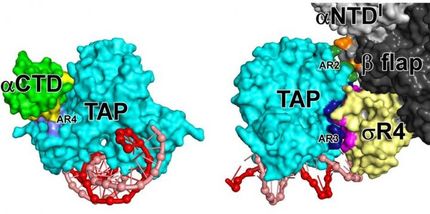EMBO Gold Medal 2010 recognizes Jason W. Chin
Synthetic biologist pioneered genetic code reprogramming
Advertisement
The European molecular biology Organization (EMBO) announced the award of the EMBO Gold Medal 2010 to Jason W. Chin from the Medical Research Council’s Laboratory of Molecular biology (MRC-LMB).
Chin receives the award for his pioneering work on reprogramming the genetic code. Chin’s work allows designer amino acids to be encoded at specific, predetermined positions in proteins in vivo, enabling molecular biologists to control and elucidate the functions of proteins in cells with unprecedented precision.
Upon hearing that he had been awarded the medal for 2010 Jason said: “Given all the great science happening in Europe right now I am delighted to receive this award. I am very grateful to all my colleagues who have made the science possible.”
Chin’s work “identifies him as an outstanding molecular biologist of his generation,” commented Paul Nurse, President of Rockefeller University. “Jason is one of the most brilliant, original and imaginative scientists I know,” added Venki Ramakrishnan, who is also at MRC-LMB.
Chin’s work centers on reprogramming the genetic code. DNA is copied to messenger RNA in cells; triplet codons in the messenger RNA (mRNA) are then decoded in the process of trans-lation to make proteins composed of a canon of 20 naturally occurring amino acids.
With his group of researchers at the MRC-LMB, Chin is rewriting this central dogma to create organisms that synthesize proteins containing designer amino acids. He has developed molecular biology tools to incorporate the designer amino acids into proteins, allowing his group to investigate the role of protein interactions and post-translational modifications in diverse biological processes. Chin’s group has genetically encoded acetyl-lysine and methyl-lysine into proteins. This has allowed Chin, in collaboration with Daniela Rhodes who is also at MRC-LMB, to construct ‘designer chromatin’ to define the role of post-translational modifications in epigenetics and DNA-dependent processes such as DNA repair, transcription and replication.
“As a direct consequence of his work molecular biologists can now answer a panoply of important questions about the molecular and cellular functions of proteins and protein post-translational modi-fication with a previously un-imagined molecular precision,” commented Kim Nasmyth, Head of the Department of Biochemistry at the University of Oxford.
Jason Chin began his quest to rewrite the genetic code during his postdoctoral research years at The Scripps Research Institute in California. There he pioneered the development of an orthogonal aminoacyl-tRNA synthetase/ tRNACUA pair to direct the incorporation of designer amino acids into proteins in response to the amber stop codon.
Since establishing his independent group at MRC-LMB Chin has developed general methods for creating new ortho-gonal aminoacyl-tRNAsynthetase/ tRNA pairs and created new orthogonal ribosomes that decode quadruplet rather than triplet codons. By bringing together the new ribosomes and aminoacyl-tRNA synthetases in the same cell he has created a new translation system that operates in parallel with natural protein translation and allows the incorporation of multiple designer amino acids into proteins in cells.
“The translation system really represents the ultimate paradigm for assembling polymers of defined sequence,” Chin explains. “We would like to be able to synthesize and evolve designer polymers in cells.”
The new polymers Chin envisions might offer key benefits for the creation of stable protein-like therapeutics and enable the discovery and synthesis of biological plastics and other materials. “Our work builds on decades of research that have provided a fundamental structural and mechanistic understanding of how protein translation functions. Using this knowledge to create new systems that help us further under-stand biology at the molecular level and provide enabling technologies for encoded polymer synthesis is really exciting. We are just at the beginning of investigating what might be possible,” Chin notes.
























































